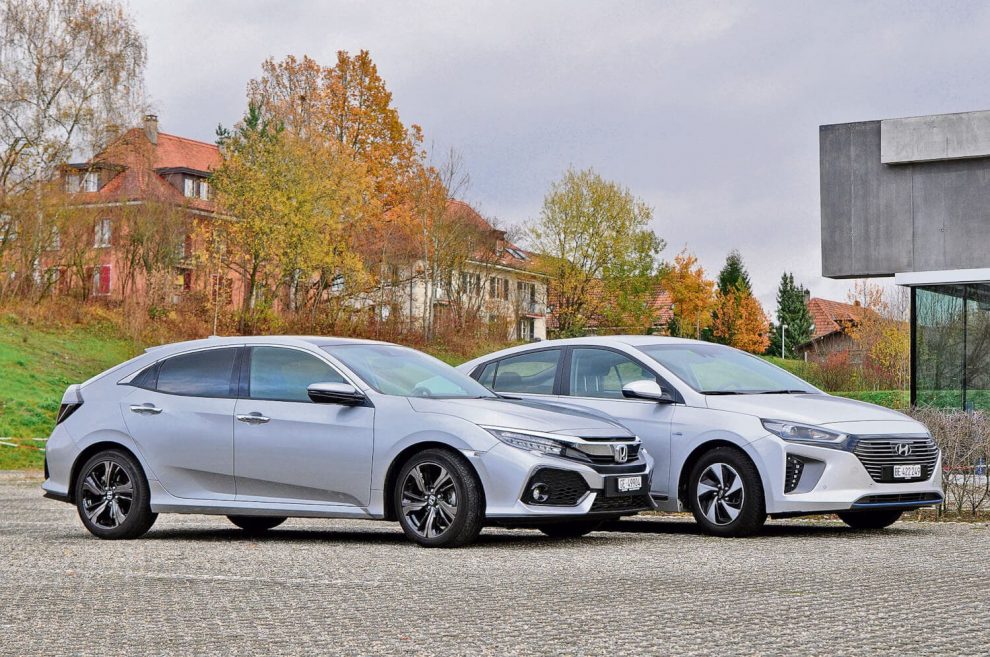Downsizing vs. hybrid comparison
Can a full hybrid like the Hyundai Ioniq, which completed the long-distance test at AutoSprintCH, hold its own against a modern gasoline engine with downsizing technology? The brand-new Honda Civic with 1.0-liter turbo and 129 hp was compared.

Can the complex drive system of a hybrid vehicle also use its technological advantage to its advantage in everyday driving? We answer this question with a competitor that knows how to play on equal terms. It's the five-door Honda Civic, which has only been on the market for a few months.
Minor differencesIn terms of dimensions, the Civic and Ioniq differ by a few centimeters at most. The interior is similarly spacious in both 4.5-meter-long hatchbacks. Surprisingly, the hybrid can score more in terms of trunk space with 550-1505 liters (Civic: 480-1245 l) despite higher technology use. Seating comfort, variability and handling leave little to be desired in both cars. In terms of noise and ride comfort, they are equally suitable for long journeys.
The Hyundai Hybrid is equipped with a 1.6-liter 105 hp four-cylinder engine assisted by a 43 hp electric motor. The system output of 141 hp is transmitted to the front axle via a dual-clutch transmission with 6 gears. The Civic engine is a turbocharged three-cylinder that produces 129 hp, 12 hp less, but the Civic also weighs over 300 kg less. In our case, the power transmission is handled by the continuously variable CVT gearbox.
Both test subjects accelerate from 0 to 100 km/h in 10.8 seconds, whereby the hybrid subjectively seems more lively thanks to the additional electric boost. In a direct comparison, however, neither of the two powertrains is superior to the other in terms of driving dynamics. The functional characteristics of the CVT with its tendency to rubber band effect are easy to get used to.
Where are the differences?The remaining question concerns consumption and costs. The Honda averaged a frugal 6.7 l/100 km in the test. Considering the winter tires and the temperatures around freezing point at the time of the test, this is a good value. The change to winter tires and the cold weather are also noticeable in the Ioniq: Its hybrid consumption increases from 4.4 to 4.8 l/100 km.
At 30,000 km per year, the fuel costs of the hybrid (gasoline price: Fr. 1.60/liter) are around 2200 francs. The Civic, on the other hand, costs 3200 francs. Considering the difference in purchase price, which is about 2,000 francs higher for the 32,000 franc Ioniq with comparable equipment, we assume that it takes two years to compensate for the hybrid premium. With higher mileage, the period is shortened accordingly.
The conclusionThe Ioniq Hybrid clearly scores in terms of consumption, and those who use the car a lot can also make up for the penalty of the purchase within two or three years. However, those who do not like the new technology will find plenty of conventionally powered cars - the Honda Civic is a good example of this.











